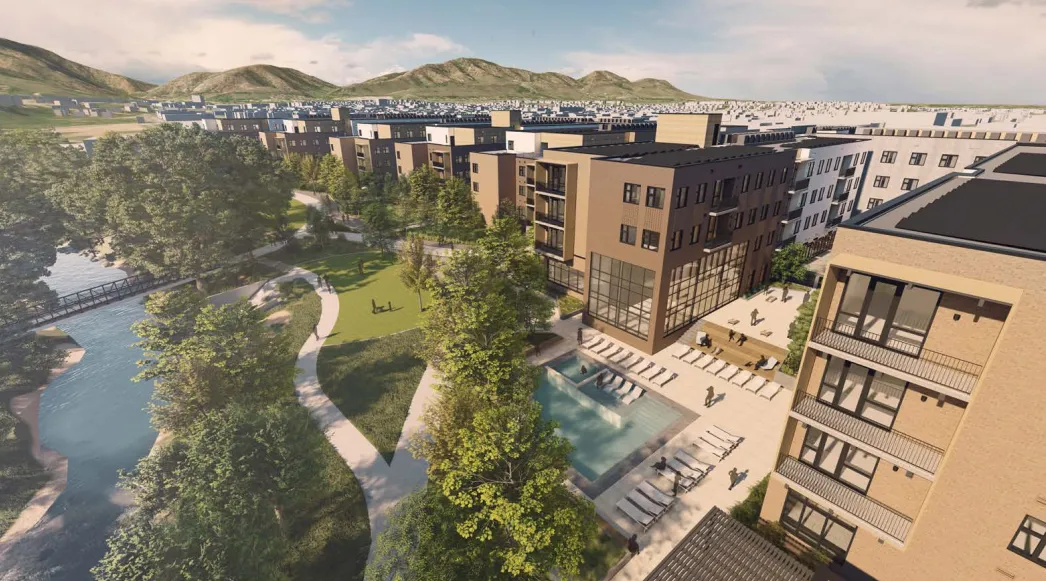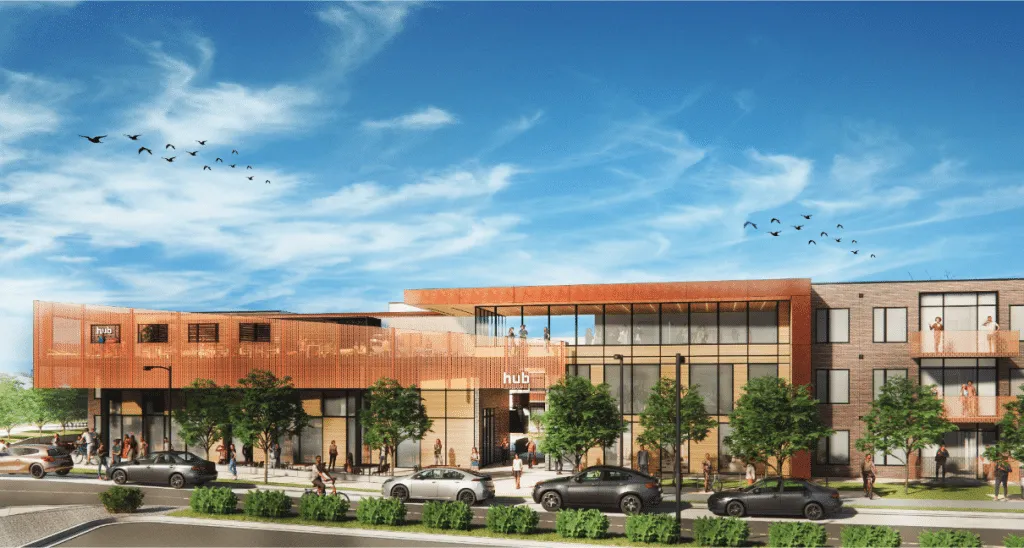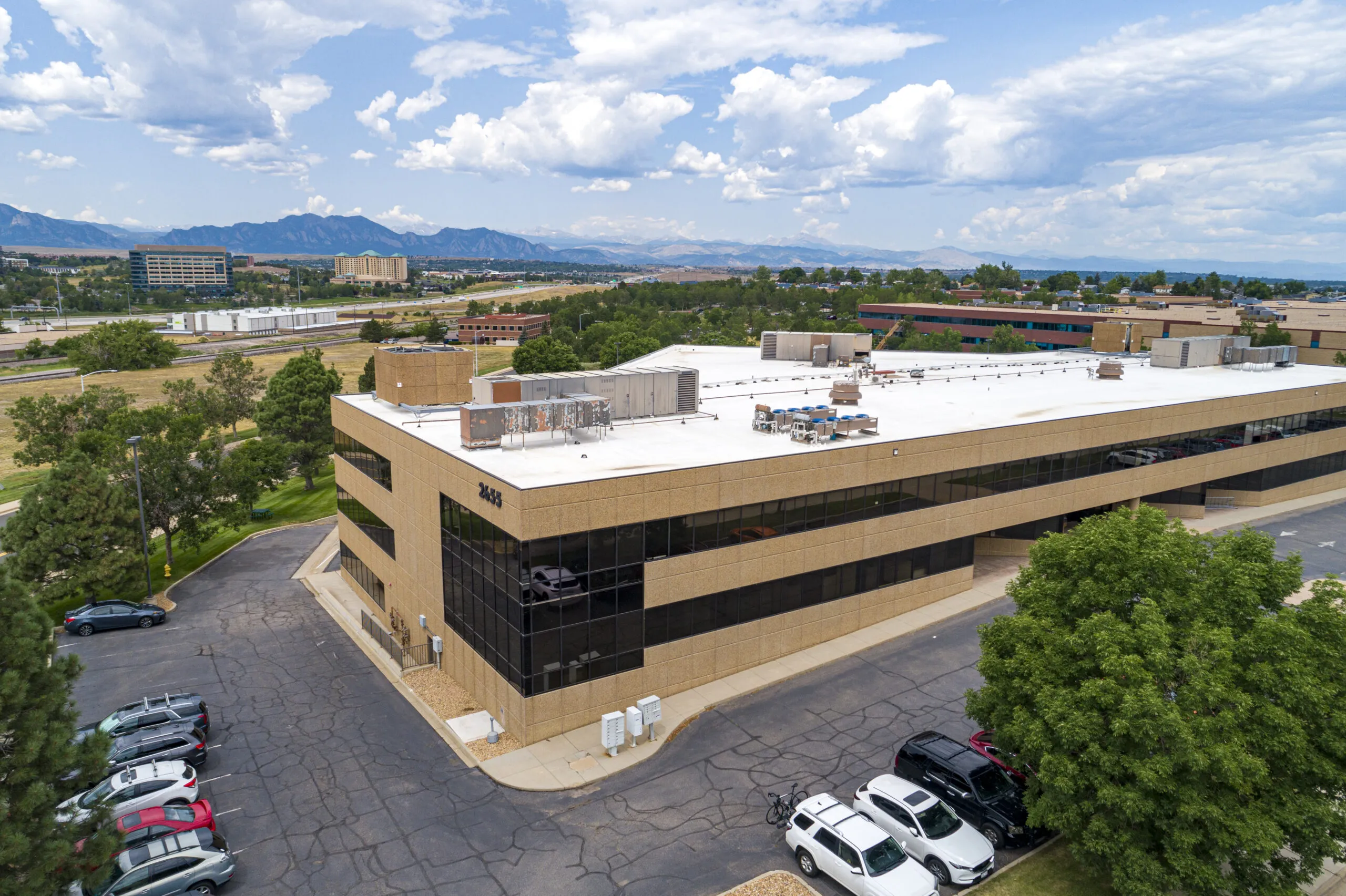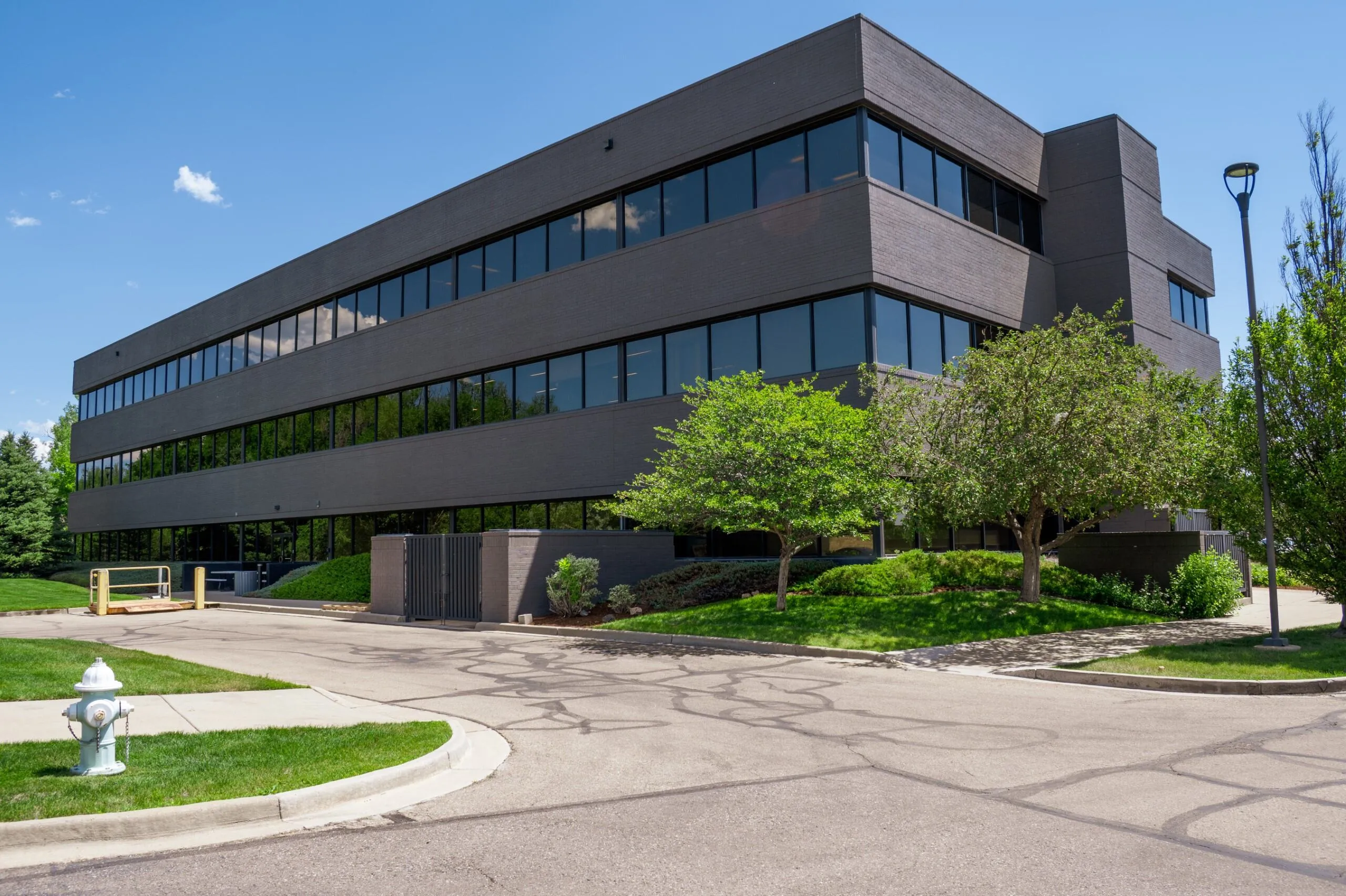Checking in
Developers eye hotels for conversion to apartments

The seemingly insatiable demand for housing in the Boulder Valley and Northern Colorado has led developers and investors to eye creative ways to build new residences, and, increasingly their gazes are landing on hotels.
Underutilized and aging hotels, which are often located in dense, highly trafficked corridors and come with existing interior building and exterior site infrastructure, appear to be natural candidates for conversion into apartments, a process commonly referred to as “adaptive reuse.”
Hotel-to-residence conversions represent about a quarter of all adaptive reuse projects in the United States, according to a recent report from rental-housing search platform and market-insight company RentCafe.
SPONSORED CONTENT
In Boulder, one high-profile adaptive-reuse project is set to add hundreds of student apartments along one of the city’s main entryways near the University of Colorado campus.
Athens, Georgia-based Landmark Properties Inc. bought the Millennium Harvest House hotel in early January for nearly $71.9 million with the aim of transforming it into residences.
Landmark, which began its planning process prior to the COVID-19 pandemic, intends to replace the 28th Street hotel with three four-story buildings containing 303 student-housing rental apartments — a mix of studio, one-, two-, three-, and four-bedroom units. The complex would have more than 900 bedrooms.
Plans for the redeveloped property call for significant public amenities centered along Boulder Creek, Landmark representatives told Boulder planning officials last summer when the proposal was under review.
“These are the kinds of projects that the Boulder Chamber is thrilled to see,” Jonathan Singer, the chamber’s senior director of policy programs, told planning officials last year.
Construction of more than 300 new rental units would lead to “decreasing pressure on single family homes,” which students have come to rely on due to lack of apartment options, he said. The project represents a unique “opportunity for students to live, study and work in the same place.”
The Harvest House Hotel, as it was known when it opened, was built in 1958. The building was designed by Denver architect Ralph Peterson.
The hotel site is home to several “cottages,” which house local small businesses such as the Dream Makers Preschool and Single Track Mountain Bike Adventure. Landmark’s plans include the retention of these buildings and their tenants. What the developer’s proposal does not include is the retention of the Rocky Mountain Tennis Center and its tennis bubble.
The Millennium Harvest House Hotel site also has an existing fish observatory built into the side of Boulder Creek. The plan is for this feature to remain when the apartments are built.
A few blocks south of the Millenium Harvest House, Chicago-based developer Core Spaces, through holding company Core Boulder 28th Street LLC, bought the 99-room Best Western hotel site at 770 28th St. in late 2021 for $28.5 million with the goal of converting it into CU student housing.

Plans for The Hub, as Core dubbed the apartment project, began the city’s review process in 2022 and proposes 96 four-bedroom rental units with amenities spaces, common areas and a ground floor café.
Built in 1970 as the Royal Inn and Jolly King Restaurant, the hotel was converted into a Best Western in 1979. It was upgraded to a Best Western Plus in 2011 and had been remodeled as recently as 2015.
Another aging Best Western, this one in Boulder’s neighboring city to the north, was also a recent target for adaptive reuse.
The Best Western Plus Plaza in Longmont, a 210-room inn that had welcomed guests for four decades, shuttered about two years ago following its sale to a developer that specializes in transforming hotels into apartments.

Vivo Apt Longmont LLC, a subsidiary of California-based Vivo Living, bought the hotel at 1900 Ken Pratt Blvd. in 2021 from CO Hotel LLC, an affiliate of Chester, Virginia-based Shamin Hotels, for $15.4 million.
Shamin took over the property in 2018 from longtime owner Pratt Management Co. At the time, Shamin said it planned to renovate the hotel and the 36,000-square-foot Plaza Convention Center, which it had agreed to manage under a deal struck with owner Chernoff Boulder Properties LLC. But less than a year after taking over management duties, Shamin exercised a clause in its contract to stop managing the convention center, and bookings were halted.
In the years since the hotel’s sale, Vivo Living has transformed the site into Vivo Living Longmont, an apartment complex with 189 studios and 21 one-bedroom units. Of those, more than two dozen are rented at below-market rates.
Longmont City Councilwoman Marcia Martin told the Longmont Times-Call in 2022 that the complex helps provide the community with much-needed affordable workforce housing.
“I think we are done with the dream of single-family houses with yards,” Martin told the newspaper. “This is a little bit like a walkable urban neighborhood. There’s a gym. There’s a picnic area. There are places to barbecue.”
In 2021, a proposal was submitted to Fort Collins planners to redevelop the Courtyard by Marriott at 1200 Oakridge Drive and an adjacent Residence Inn at 1127 Oakridge Drive into multifamily housing. It’s unclear whether those plans will move forward, and both hotels remain open.
While the hotel-to-apartments conversion concept has gained steam in recent years, driven largely by a combination of demand for housing and sky-rocketing land and construction costs, the phenomenon isn’t new.
More than two decades ago, what is now the 609 Studios apartment building in downtown Greeley was a Ramada Inn. A Holiday Inn when it first opened in 1974, the hotel at 609 Eighth Ave. was rebranded several times over the years.
In the late 1990s, according to reporting from the Greeley Tribune, the University of Northern Colorado began using the Ramada as overflow student housing. A full-scale conversion into apartments marketed mainly to UNC students occurred in 2002 at the cost of $1.4 million.
Originally called the Oasis Tower and later renamed the University Tower Apartments, the 59-unit apartment building fell into disrepair under its previous ownership before it was eventually purchased about four years ago for $6.65 million by 609 8th Avenue LLC, which spruced up the property and dubbed it 609 Studios.
Just because hotels are being converted into homes doesn’t necessarily indicate a lack of demand for lodging. In fact, there are hotels being planned or built near conversion projects in several local markets.
A Moxy-branded hotel from Marriott International Inc. (Nasdaq: MAR) in Boulder’s University Hill neighborhood adjacent to the University of Colorado campus and only about a mile-and-a-half from the Millenium Harvest House is expected to open in the second quarter of 2024.
The 189-room hotel at 1253 Pleasant St. will feature 10,000 square feet of ground-floor retail space, 5,300 square feet of indoor and outdoor events space, bar and lounge areas and a publicly accessible courtyard, according to Vision Hospitality Group, the Chattanooga, Tennessee-based company contracted to manage the property. Denver-based The Nichols Partnership Inc., with funding from BMC Investments, is the Moxy Hotel’s developer.
The Nichols hotel development has been in the works for the better part of the last decade and is one of several major hospitality projects near the CU campus on the verge of coming online in the near future. Boulder business and economic leaders have for years argued that new lodging and events spaces are key to long-term revitalization efforts in the University Hill district.
Limelight Hotel Boulder broke ground in early 2023 along the 1400 block of Broadway.
That project, which is being developed by Aspen Skiing Co.’s Aspen Hospitality division (formerly known as Little Nell Hotel Group) in partnership with CU, will feature 250 rooms and contain 25,000 square feet of meeting space, including a 15,000-square-foot ballroom. It is expected to cost about $130 million to develop.
Combined, the Limelight and Moxy hotel projects create “new synergies in an ongoing revitalization of the University Hill business district,” CU said last year when the university announced the Broadway hotel will be a Limelight-branded property.
CU has long sought to increase the availability of accommodations near campus, a mission made more critical by the potential redevelopment of the Millennium Harvest House Hotel.
Longmont leaders have expressed the same goal since the Plaza Convention Center shuttered.
In downtown Longmont, about two miles from the former Plaza hotel and events center complex, Mississippi hospitality developer the Thrash Group has targeted a city-owned parking lot in downtown Longmont for a $24.5 million boutique hotel.
The project, referred to in Longmont city documents as Hotel Longmont, is planned for the northwest corner of Kimbark Street and Third Avenue. Longmont City Council voted unanimously in late 2022 to approve an agreement that establishes the framework for land acquisition and subsidies for the project.
In addition to 84 guest rooms, Hotel Longmont is proposed to “include approximately 4,000 square feet of commercial space at ground level, including pre-function, meeting space, retail or a combination of both, as well as an approximate 5,000 square foot rooftop restaurant with views and outdoor patio space facing to the west,” according to a memo provided to Longmont City Council in 2022.
“There’s been a need for lodging downtown for as long as anyone can remember,” Longmont Downtown Development Authority executive director Kimberlee McKee told BizWest when details for the Hotel Longmont project were unveiled. “In the past 30 years, we’ve seen [the concept] continuously come up in our master planning for development and in our community outreach.”
An upscale hotel downtown “opens up such possibilities” for economic development in central Longmont, McKee said, in the form of increased spending by the likes of business travelers, visitors to Rocky Mountain National Park and wedding parties.
“We will hopefully introduce a lot of people to downtown Longmont,” Thrash Group partner Joe Thrash said in 2022.
The agreement signed off on by the Longmont Downtown Development Authority and Longmont City Council transferred ownership of the city property to Thrash and established an incentive package worth $4.3 million, or about 17.6% of the overall project cost estimate. That total includes the value of publicly owned parking lot land, $2.3 million in tax increment funding, $1.2 million in lodging-tax reimbursements and $400,000 in downtown improvement program proceeds from the LDDA.
While the Hotel Longmont project won’t provide as many rooms or convention square footage as was lost at the Plaza, city leaders said its development would represent a step in the right direction.
“I don’t think this will be the end of all of our needs,” McKee said in 2022 “but I think it’s a great place to start.”
Hotels, of course, aren’t the only types of properties that could be adaptively re-redeveloped into housing.
Office buildings, which have faced skyrocketing vacancy rates in the years following the COVID-19 pandemic, are often viewed as ripe for new housing units, but local developers have so far mostly shied away from taking on such projects, citing challenges with zoning and land-use regulations and the high cost of installing the requisite building infrastructure such as plumbing, insulation, heating and air conditioning.
To make office-to-apartment conversion projects more attractive, Colorado lawmakers have proposed a bill that would create a pool of tax credits to be doled out to developers to take on the challenge.
“If you have a lot of empty space and a lot of people who want to rent space, we’re trying to bring them together,” Colorado Rep. Alex Valdez (D-Denver) told 9News in February.
Despite the inherent challenges, a developer in Westminster is in the process of attempting a small-scale office-to-housing transformation project.
In mid-March, Westminster’s Planning Commission unanimously recommended approval of a zoning change and preliminary development plan for the eight-unit project at the site of a vacant office building 3699 73rd Ave.
The office building was built in 1964, has three stories and totals nearly 5,000 square feet, according to an online marketing brochure. The ownership group, 3699 West 73rd Ave LLC, bought it in 2022, Westminster planning documents show.
In addition to the eight rental units planned, the developer intends to include about 500 square feet of commercial space that could be a small cafe or coffee shop.
Such a transformation — from a vacant office space to housing — would represent an “adaptive reuse” of the property, city staff said in a document provided to the Westminster Planning Commission.
The development, led by 3699 West 73rd Ave LLC, an entity registered to the Wheat Ridge address of Eagle Environmental Consulting, is a “small project with a very big impact,” Owen Beard, a representative of the developer and president of Solid Architectural Design, told city planning officials. The intent is to take “a building that’s been derelict for quite some time and (turn) it into a residential project.”
The seemingly insatiable demand for housing in the Boulder Valley and Northern Colorado has led developers and investors to eye creative ways to build new residences, and, increasingly their gazes are landing on hotels.





